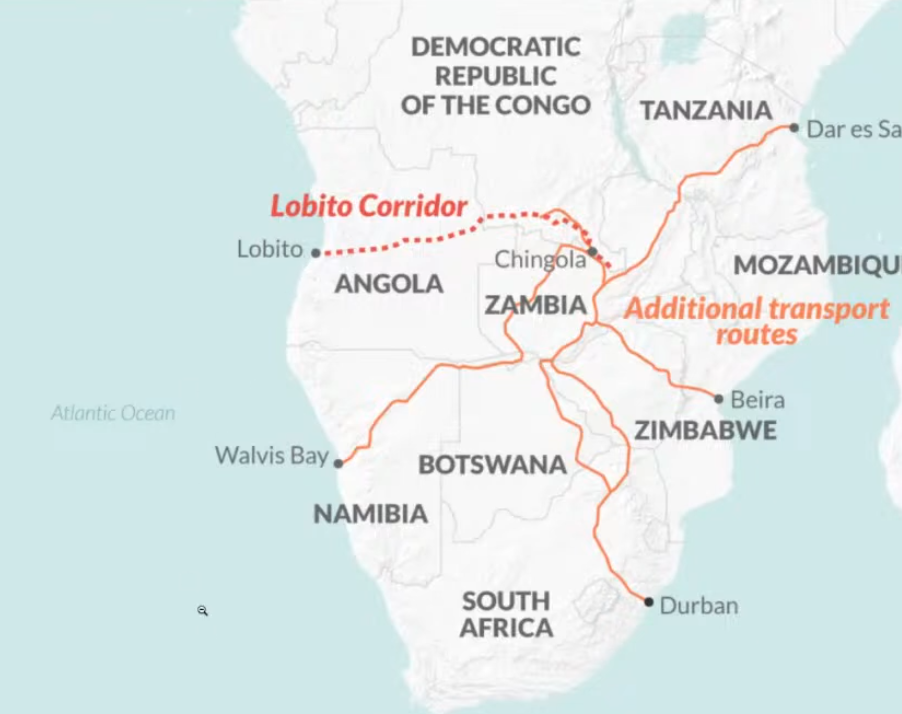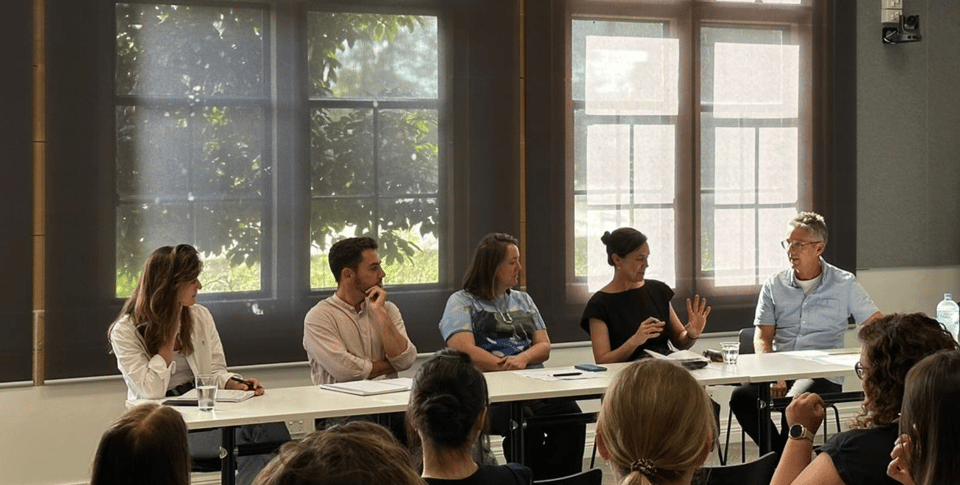Pluralism, panels and... polycrisis
Welcome to the 26th edition of the Polycrisis Dispatch. It has been a busy couple of weeks in the world, and for us. Tim’s industrial odyssey is continuing (he is now touring steel blast furnaces in India), and last week I attended a conference in Sydney; more on that at the end of this email. - Kate
We are all tariffs experts now
We are not, really. Who is?
In our new Polycrisis/Phenomenal World newsletter, Lara and I looked at the persistence of an America First stance through recent US administrations:
Trump’s rhetoric and potential actions are an extreme escalation, rather than a departure for US engagement. In practice, the Biden administration took an a la carte approach to international rules, invoking them when convenient and ignoring them when not. For the US to regain trust, next time America is “back” it should engage in negotiating reforms that can ensure the multilateral system works for all countries, and take steps to solidify a rules-based order where everyone, including the US, is held accountable when breaking the rules, no matter who is president.
It’s not novel to point to successive US governments being less than exemplary on the world stage, but we wanted to explore how those awkward consistencies between administrations of either party span trade, sanctions, climate and international finance.
Lara and I agreed that the 2021 issue of Special Drawing Rights, led by Janet Yellen’s Treasury, was one of the few truly significant contributions by the Biden administration to global wellbeing. It provided unconditional and extremely low-cost finance that distressed and vulnerable countries were able to put to use immediately (mostly, paying down debt). Although various other reforms and initiatives took place over the last four years, most were incremental and halting at best.
Reviewing the Biden trip to Angola, however, was a reminder that his administration also supported the African Union (AU) to become a member of the G20. Cash probably outweighs this too –- especially while the AU itself doesn’t yet have many common positions that would allow it to be most effective there. Incidentally, South Africa is the new G20 host for 2025. One of its special initiatives will be a Cost of Capital Commission.
Pluralism in climate opinions
Arnab Datta’s op-ed in the New York Times about what US climate activists should do under the incoming Trump administration was understandably – but also, frustratingly! – upsetting for a lot of people. What rankled most was its characterisation of climate activists as having no more than keep-it-in-the-ground sloganeering.
I wrote and thought far too much about this, reading threads and corresponding with various Polycrisis collaborators. Some of the points of disagreement seem to be significant while others are simply confusing and distracting.
Eventually though, it made me think of the Gawker (RIP) tags #tooinsidery and #journalismism. In otherwords: you probably don’t all need to read all that. But it’s worth reading Skanda’s thread on Bluesky, and Thea’s thread on X.
After that, do go and read Liam Denning’s column which also ran this week and makes some similar arguments, although he focuses on building the new system (massive cheap electricity!) rather than managing out the old one (fossil fuels and all their political and physical incumbency).
Denning identifies the flaw in the Biden administration pinning its hopes on “green jobs”:
This didn’t seem to resonate, perhaps because, as Kevin Book of ClearView Energy Partners points out, it came with a fundamental flaw. Energy is an economic input and we ultimately want it to be cheap — meaning higher productivity as opposed to jobs.
This is one of the big lessons many of us have learnt over the last couple of years: energy is a critical input. It has to be cheap and effective; like food and housing, and business logistics (see Isabella Weber’s work on critical sectors).
Denning proposes focusing on electrification; grid investments, permitting reforms, and on critical minerals – whatever is needed to get more and cheaper electricity.
“Emphasizing electricity-enabled jobs and/or investment, rather than just green energy jobs in and of themselves, would represent a subtle but meaningful reframing of climate policy as the path to efficient, cheaper — and sustainable — energy, and the economic possibilities flowing from that.”
On which note: a little-noticed initiative of the Azerbaijan COP29 presidency is the “Global energy storage and grids pledge”. Only 58 countries signed so far but it might be an interesting intersection of global targets and domestic policy.
Biden visited Angola
…earlier this month, and not a lot came of it. The visit was delayed until after the election because of Hurricane Milton. From the US perspective, the main focus in Angola is the Lobito Corridor railway, which is shaping up to be a test of both Western and Chinese commitments to African development, as we wrote in Marshall Plans. The FT’s piece – titled The US railway that could set off a copper war – summarized that “the core goal of the Lobito Corridor is to create the quickest, most efficient route for exporting critical minerals from the central African copper belt and on to the US and Europe.”
Historian of post-colonial Africa Nathaniel Powell also has a bleak assessment of the corridor: “a) reinforce raw material export dependency b) obstruct economic diversification c) have limited industrialization effects d) fuel corruption and e) enrich multinationals.”
As we wrote in an earlier dispatch, “Power and Powerlessness”, the project’s ambitions have all the complexity of the critical minerals supply chain. Plus, China is seeking to upgrade the historic TAZARA railway out of Zambia to the Dar es Salaam port in Tanzania. TAZARA was originally built in the 1970s with interest free loans and 50,000 workers provided by Mao’s China.

The Sydney symposium
Sophie Weber and Gareth Bryant organized a symposium on ‘the climate economy’ which featured some great researchers from abroad including Ilias Alami, Patrick Bigger, Adrienne Buller, Beki McIlvain, Mathew Lawrence, Advait Arun, Sage Ponder and Mona Ali. Topics included Australian critical minerals policies, the Loans Program Office IRA tax credits, dollar centrality, home insurance, renewables manufacturing in Morocco; adaptation in China; but it’s impossible to do justice to the range and depth of what was covered in the 3 day program in an email roundup.
My contribution was speaking on a panel with Adrienne Buller, Dan Sherell of the Australian Council of Trade Unions, Holly Creenaune of the Sunrise Project. We talked about how the new and emerging politics of climate change; the role of state and capital, and how it could be applied to adaptation as well as mitigation; and how to reconcile that with project-focused campaigning.

Some links:
Climate & Community Institute had a panel on “what’s next for the climate left?”
The World Bank is having a Polycrisis-themed conference next week
An interesting interview with Rachel Kyte (now UK climate envoy)
That’s all for this week. You can also find us at our Phenomenal World newsletter, Bluesky (Tim, Kate, Lara), and the Discord - which has been very busy this week. Ciao!
Add a comment: